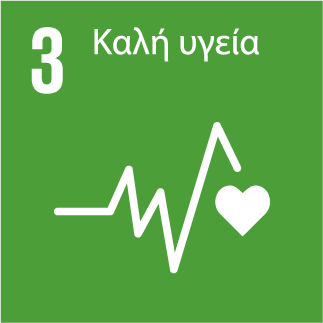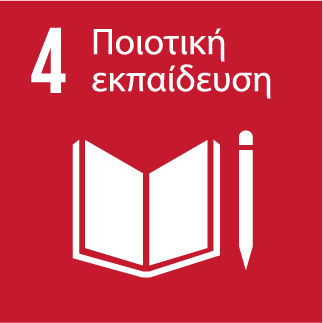PanGen
Description
Building on large biobanks data from across Eurasia and advanced statistical and machine learning approaches, we generate population-specific genetic profiles that can be used for targeted disease treatment and prevention strategies.
Personalized medicine promises to offer treatment and prevention strategies for many common diseases, tailored to individual needs and circumstances. As genetics plays an important role in many diseases it is important to account for the individual genetic profile, usually summarized as a polygenic risk score (PRS) for a given disease. However, these currently have limited applicability outside the ethnic group in which they were developed. We have devised a solution, building on large biobanks with genetic and phenotypic data from across Eurasia and advanced statistical and machine learning approaches to predict population-specific variation in medically relevant genes and pathways.
One of the main obstacles for accurate trans-ethnic PRSs has been the lack of detailed knowledge of genetic variation, including rare mutations and structural genetic variations that can have large biological effects. We will leverage genomic data from large biobanks in North Europe (UK, France, Sweden, Finland and Estonia), South Europe (Italy, Spain and Greece), the Middle East (Turkey, Israel, Qatar and Saudi Arabia), India, and East and South-East Asia (China, Taiwan, Japan, Korea and Singapore) to generate detailed genetic maps of genetic variation landscape across Eurasia, including populations that have not been directly genetically sampled using state of the statistical techniques.
We will take advantage of the huge amounts of data available in biobanks and cohort studies conducted across Eurasia on anthropometric, metabolic, physiological, and behavioral traits (including diet, alcohol consumption and smoking habits) and electronic records of medical conditions and medication, linked to individual genomic data, to identify shifts in polygenic scores and known druggable pathways across Eurasia for a wide range of clinically relevant traits.
Our product will leverage recent advances in big data methods for joint analysis of heterogeneous data for large numbers of traits and linked genomics variation, as well as emerging deep learning solutions that enable extraction of complex relationships between genetic and biological variables and health outcomes.
Our revenue model has two main components: First, we would offer a consultancy service to companies in the health industry and governmental and non-governmental health care or health service providers. Potential customers would include:
1) Medical companies developing new products or in search of new markets for existing products. As part of our service, we would provide custom advice on any physiological or metabolic factors that could affect the drug and its side effects in the target population or geographical region of interest
2) Healthcare providers who want to tailor treatments to a set of individual patients or subpopulation (e.g. people mixed ancestry) or include genetic factors in their risk prediction models for screening programmes or to promote healthy aging, prevent common chronic conditions with high mortality such as diabetes, cardiovascular disease, obesity, and Alzheimer's disease.
We would use the next six months and the funding to gain a better understanding of the exact needs of our customers and based on that information generate a prototype of the full service, using biobanks from Europe and East Asia and focused on a limited set of phenotypes and medical conditions.
The main costs would include 1) Cost of initial market research to gain a full understanding of the relative importance of different features, we would be able to provide for our customers. 2) Cost of developing the web interface and the computational infrastructure required by the service and 3) Initial marketing costs.
The potential market for consultancy services is very large and well-funded. It includes all major biomedical and pharmaceutical companies, medical service providers (including governments). To reach these customers we will use targeted advertising and networking online on platforms such as Linked-in and in-person on health-related conferences and summits.
The potential market for individually tailored genetic risk predictions is also very large. Platforms that generate personal genotype information as part of their service, such as Ancestry (more than 3 million customers) and 23andMe (more than 12 million customers) have skyrocketed in popularity in the recent decade. Furthermore, due to the reduction in genetic sequencing prices personal genome sequencing has become an affordable option for many private (as well as some public) hospitals and clinics and even individuals. Furthermore, some populations (e.g. Estonia and Finland) have National Biobanks through which individuals can access their genomic data at no cost to the individual. Services targeted to the general public will be advertised on social media, although we would seek professional input for Marketing strategy. Given the scalability of our approach, it would be straight-forward to provide significant early-bird discounts or free trial periods to advance the marketing coals.
Personalized medicine promises to offer treatment and prevention strategies for many common diseases, tailored to individual needs and circumstances. As genetics plays an important role in many diseases it is important to account for the individual genetic profile, usually summarized as a polygenic risk score (PRS) for a given disease. However, these currently have limited applicability outside the ethnic group in which they were developed. We have devised a solution, building on large biobanks with genetic and phenotypic data from across Eurasia and advanced statistical and machine learning approaches to predict population-specific variation in medically relevant genes and pathways.
One of the main obstacles for accurate trans-ethnic PRSs has been the lack of detailed knowledge of genetic variation, including rare mutations and structural genetic variations that can have large biological effects. We will leverage genomic data from large biobanks in North Europe (UK, France, Sweden, Finland and Estonia), South Europe (Italy, Spain and Greece), the Middle East (Turkey, Israel, Qatar and Saudi Arabia), India, and East and South-East Asia (China, Taiwan, Japan, Korea and Singapore) to generate detailed genetic maps of genetic variation landscape across Eurasia, including populations that have not been directly genetically sampled using state of the statistical techniques.
We will take advantage of the huge amounts of data available in biobanks and cohort studies conducted across Eurasia on anthropometric, metabolic, physiological, and behavioral traits (including diet, alcohol consumption and smoking habits) and electronic records of medical conditions and medication, linked to individual genomic data, to identify shifts in polygenic scores and known druggable pathways across Eurasia for a wide range of clinically relevant traits.
Our product will leverage recent advances in big data methods for joint analysis of heterogeneous data for large numbers of traits and linked genomics variation, as well as emerging deep learning solutions that enable extraction of complex relationships between genetic and biological variables and health outcomes.
Our revenue model has two main components: First, we would offer a consultancy service to companies in the health industry and governmental and non-governmental health care or health service providers. Potential customers would include:
1) Medical companies developing new products or in search of new markets for existing products. As part of our service, we would provide custom advice on any physiological or metabolic factors that could affect the drug and its side effects in the target population or geographical region of interest
2) Healthcare providers who want to tailor treatments to a set of individual patients or subpopulation (e.g. people mixed ancestry) or include genetic factors in their risk prediction models for screening programmes or to promote healthy aging, prevent common chronic conditions with high mortality such as diabetes, cardiovascular disease, obesity, and Alzheimer's disease.
We would use the next six months and the funding to gain a better understanding of the exact needs of our customers and based on that information generate a prototype of the full service, using biobanks from Europe and East Asia and focused on a limited set of phenotypes and medical conditions.
The main costs would include 1) Cost of initial market research to gain a full understanding of the relative importance of different features, we would be able to provide for our customers. 2) Cost of developing the web interface and the computational infrastructure required by the service and 3) Initial marketing costs.
The potential market for consultancy services is very large and well-funded. It includes all major biomedical and pharmaceutical companies, medical service providers (including governments). To reach these customers we will use targeted advertising and networking online on platforms such as Linked-in and in-person on health-related conferences and summits.
The potential market for individually tailored genetic risk predictions is also very large. Platforms that generate personal genotype information as part of their service, such as Ancestry (more than 3 million customers) and 23andMe (more than 12 million customers) have skyrocketed in popularity in the recent decade. Furthermore, due to the reduction in genetic sequencing prices personal genome sequencing has become an affordable option for many private (as well as some public) hospitals and clinics and even individuals. Furthermore, some populations (e.g. Estonia and Finland) have National Biobanks through which individuals can access their genomic data at no cost to the individual. Services targeted to the general public will be advertised on social media, although we would seek professional input for Marketing strategy. Given the scalability of our approach, it would be straight-forward to provide significant early-bird discounts or free trial periods to advance the marketing coals.
Sustainable Development Goals

3. Good Health And Well-Being
It will give people the opportunity to take action towards their health early on, to minimize the risk of developing certain diseases.

4. Quality Education
Stronger partnerships will contribute to better health world-wide. Our idea can be implemented on different populations to give people the information on how they can contribute to their well-being.
Save to favorites
Notice: Undefined variable: post_id in /var/www/vhosts/hei-prometheus.eu/httpdocs/entrepreneurship-acceleration-platform/wp-content/themes/understrap-child-1/loop-templates/content-businessidea.php on line 293
Notice: Undefined variable: post_id in /var/www/vhosts/hei-prometheus.eu/httpdocs/entrepreneurship-acceleration-platform/wp-content/themes/understrap-child-1/loop-templates/content-businessidea.php on line 293
Members
4
Technologies
AI
Cloud Computing
Data Analytics – Big Data
Other
Product Type - System
B2B Services
B2B Products
Sector
Medicine and Health
Belongs to a competition
Prometheus International Startup Competition 2022
Thematic Area
Bio-Economy
Categories
Category B - Research groups of members of the community of a European University
Type of need
Mentoring - We need an experienced mentor
They will get certain percentage of the business.
Promotion - We want help to promote our idea
The partner will become a member of our team.